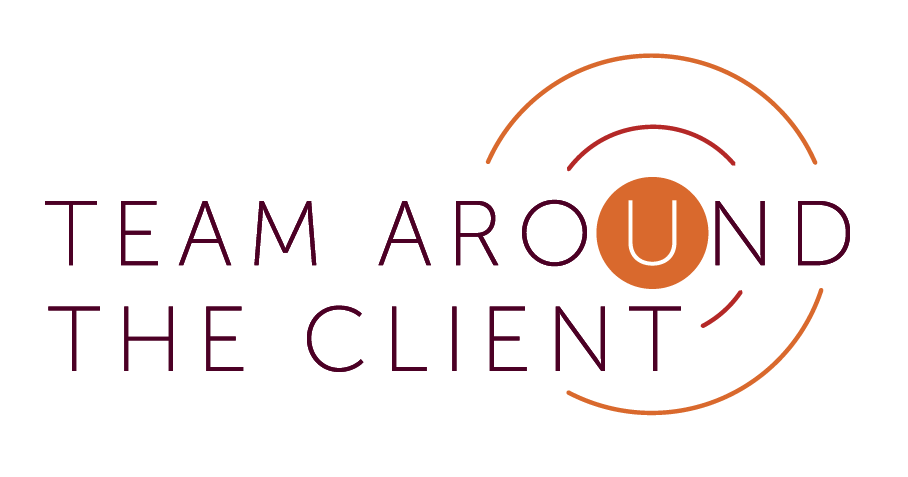In Conversation with...
former jockey and brain injury survivor George Baker

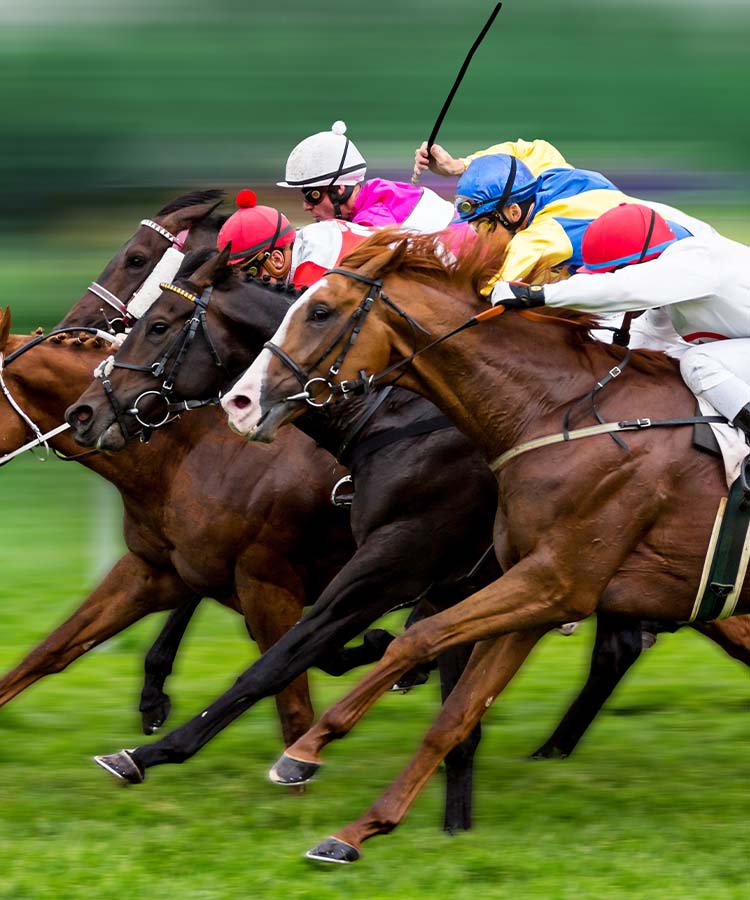
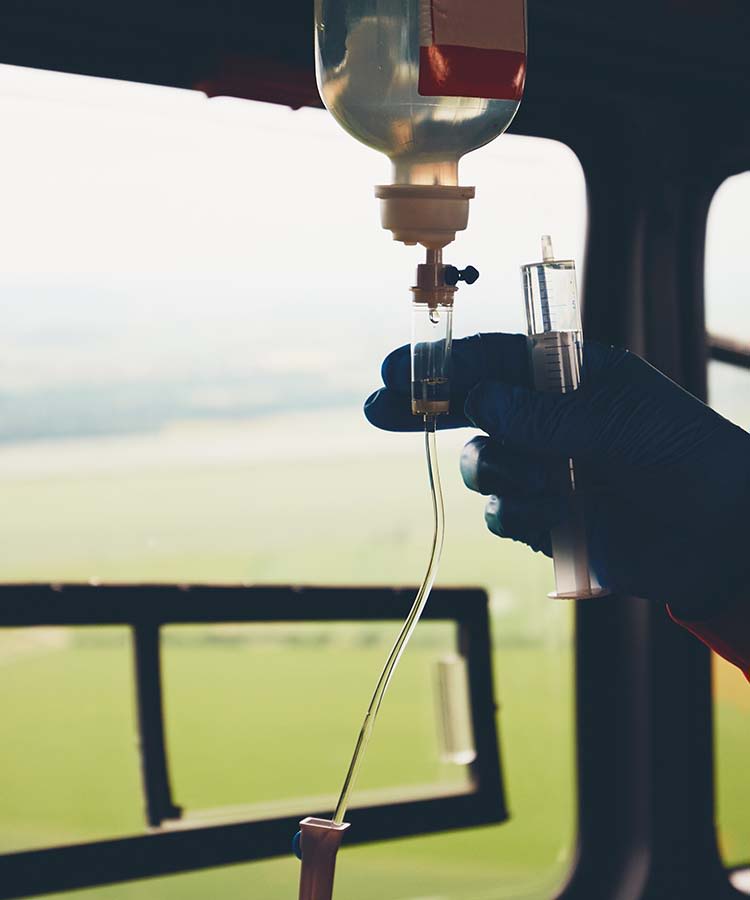
George Baker was at the height of his career as a jockey when, in 2017, riding in a unique ice horseracing meeting in St Moritz, Switzerland, his horse fell, and he suffered a severe traumatic brain injury. George had to adjust to being forced to retire from riding which was the only occupation he had ever known.
George spoke to Richard Brooks, a Partner in our Injury team, and explained the accident and his rehabilitation. Prior to the meeting George was keen to ensure he had plenty of reminders as a tool to cope with changes to his memory and organisational capacity.
He began by explaining that the “White Turf” race club puts on three meetings a year. “It was the first race of the day. There was weakness in the track. The horse put its foot through the surface and fired me into the ground. I had a sheering brain injury from the impact. It was a pretty severe head injury and I was not well for a long time.”
George was a professional jockey between 1999 and 2017, riding in over 10,000 races and winning 1,364 of them. Standing out (literally) for his unusual height of six feet he steadily progressed to the top league of jockeys.
“2016 was my last full season I had and that was my best ever year. I was building a good career as a flat jockey. I was 34 years old when it happened and had been riding since I was 16.”
After the accident
George spent four months in hospital. “I was in St Moritz for quite some time then I got transferred to the Wellington Hospital in London. I was in post-traumatic amnesia (PTA) for five weeks. My brain was in safety mode and protecting me from accident that I had. I would repeat myself a lot of the time. For my family it was a very strange time. George was there but making zero sense and talking gobbledegook.”
He has spoken amusingly about the complete lack of a filter speaking when nurses came into his room and his fortunate lack of awareness and embarrassment. He is though acutely aware of the effect on his family. “My family saw it all so it was not very nice for them.”
All that said, George recognises how lucky he was. “All brain injuries are different. I would see people in the ward and some people did not know who their family were.”
The nature of the bleed on the brain affected coordination and balance. ”I had to learn to walk again. We don’t not use the whole of our brain. If something happens to one part, you can re-jig that and train another part to pick up that process. I am not as able as I once was. I had to accept what I could and could not do. In the grand scheme of things, it was not that bad as I was able to learn to walk again.”
George admits it was a frustrating process. “I was like a 34-year-old baby to learn to walk again. A spinal injury person would pay everything they had to do that” although, he says, he still walks “a bit like a Thunderbird.”
"...I am not as able as I once was. I had to accept what I could and could not do. In the grand scheme of things, it was not that bad as I was able to learn to walk again.”
Returning to the issue of how his family were, and remain, affected, he accepts that wife, Nicola, “would say I am short tempered and can get frustrated at times” but was glad that she had wide support and, amongst others, spoke to Alice Fox-Pitt whose horse-riding husband, William, had a similar period of rehabilitation after brain injury.
“My short-term memory was horrific but I was given processes that deal with that. I wrote a diary of who I had spoken to on the day. Fatigue was the biggest thing. I was sleeping for around 13/14 hours a day.” The process of acceptance and “not fighting it” has helped. “The process of writing that diary about who I dealt with through the day and bits and bobs was important.”
“Luckily I was fit, young and healthy when I had the fall. When trying to build yourself back up it is a good position to be in. When I was in the Wellington, I would have four or five therapies a day. PT, physio and the psychological help was more important than anything. To accept what weaknesses were and aiming to get better. Through the process I got a very catered treatment. I was a professional patient as such.”
Life after racing
In time, George recognised the need to adjust to life beyond racing, but in the early days, the will to get back in the saddle was a useful driving force. “Anyone that has an accident in sport always wants to come back doing what they did before. Was it achievable? No.” But at the time he was not told there would be no return to the jockeys’ Weighing Room and if told, “I would not have believed it. That aided recovery because I had an end goal.”
“It is a journey. I am sure if you asked my wife when I got home after four months in hospital she would say I would never work again. But I would talk everyday about going back to race riding.” In truth, he says, “I did not have mental capacity to do anything like that at the time.”
“You cannot move forward until you know what weaknesses you have” he says. “A lot of people that have brain injuries do not think anything is wrong with them. Luckily I accepted what my weaknesses were and aimed to improve on them and manage my time accordingly.”
George has been quick to thank many people and organisations who have supported him, including the Professional Jockeys' Association and the Injured Jockeys Fund, through the IJF’s Oaksey House rehabilitation centre in Lambourn, Berkshire.
“A lot of people that have brain injuries do not think anything is wrong with them. Luckily I accepted what my weaknesses were and aimed to improve on them and manage my time accordingly.”
George spoke about a sense of loneliness having realised he would never be a jockey again. “When I was riding I felt like I was wanted and loved. People were kind and kept in touch. But all of a sudden you feel isolated."
"The journey after [retirement] was the hard part for me. I had a young family and I was pretty well set up as a rider but I had to work again I was not a multi-millionaire. I had outgoings and a mortgage and we had just had our first child. I had a fantastic lifestyle when riding but you cannot maintain that when things stop. It takes a bit of adjusting for me mentally it was a massive change. I was the provider and I got paid to do something I loved doing. It is a change and it takes time to adjust to those things.”
George understood that looking after his mental health was part of the key to the optimum rehabilitation. “From a maintenance perspective, it is important to not hold on to baggage. I confided in my agent, Guy Jewel. He was almost psychologist and counsellor. I used to offload on him and that is important."
He has also benefited from regular professional help with a Hobbs Rehabilitation team based at Oaksey House. “It is good to offload the baggage and to not hold on to things, from a mental health perspective one thing I have learned is not to hold onto things, you have got to let it out.”
“During the process of getting better it is important to have a strong network around you. I had never put anything in place if something should happened to me, i.e. power of attorney, joint bank accounts etc. You do not allow yourself to think that would happen. Not being able to make sure the mortgage is being paid on a monthly basis. For my wife it was terribly hard as I was the money earner at the time. Advice I could give anyone is make sure your affairs are in order as you never know what is round the corner.”
Interestingly he has put his experience to good use in one new working capacity as a jockey’s riding coach saying it has enabled some very constructive conversations with his own clients.
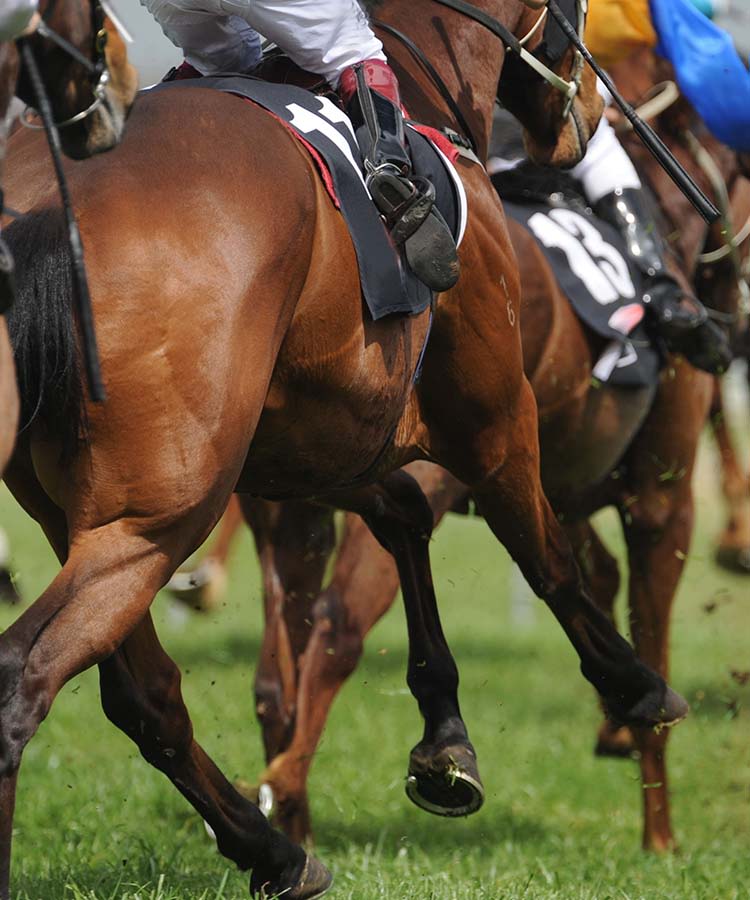
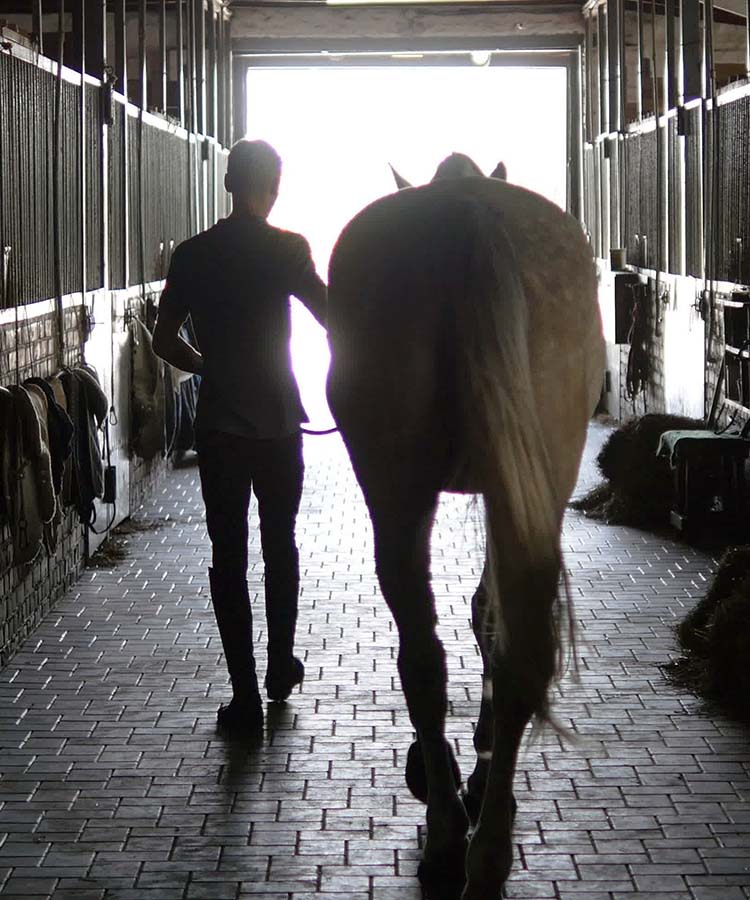
Facing up to a life-changing injury
Conversation eventually turned to the emotional decision that he would have to retire from race-riding.
A friend recommended that George watch a documentary about snowboarding champion Kevin Pearce called The Crash Reel. The film documents Pearce’s rivalry with Shaun White at the top of his sport and followed him in the aftermath of his life changing crash. ”I did not know what was coming and sat and watched it one evening. It was the realisation moment that I was not coming back as a jockey. Watching the film about Kevin Pearce made it hit home. I had thought about it before but when I watched the film I accepted it. I watched it in the evening at home with Nicola and I just cried."
"I started crying in the car and knew today was the day that ‘George the jockey was over.’"
He went on, candidly, ”It was hard to watch and to realise what I put my family through. When I was a jockey, I was not a horrible person but I was selfish. All I cared about was myself and achieving what I wanted to achieve in the industry. I took my family for granted.”
George had to meet a doctor at the British Horseracing Authority. He had the power to hand George a licence to be a jockey, or to refuse.
With his voice cracking, George explained that “I started crying in the car and knew today was the day that ‘George the jockey was over.’ I still get emotional about it now. It was something I loved doing. I was getting paid to do my hobby. There have been character building moments in life and that was one of them.
“When I announced retirement, it was important to let people know that I was packing up. I do not know why I felt so passionate about announcing it. From then I got offered bits and bobs on TV, which I had never contemplated doing. Racing is very kind when you are finding your way. I got offered plenty bits and bobs to do."
Did he have a retirement plan? No. “It is bad enough planning for retirement” he says, “but having an unplanned retirement is really difficult to cope with. That is why it is so important to access all sorts of advice sand in particular vocational support to work out what you want to do in the future.” It was the Jockeys Enterprise and Training scheme (JETS) that has helped signpost him to an NVQ Level qualification to go into jockey coaching.
“I have put on a lot of weight so I am definitely bigger but mentally at times maintenance is important and you need to look after yourself. I have accepted my deficit as such, but I have seen a lot of friends in racing that cannot get their head around that. I struggle with fatigue and I have to manage that. When I was riding I was a ball of energy. If I had an appointment to meet someone when I was riding it would have been embedded in my mind. I would not have forgotten about it. But now, with my iPhone, I have to do lots of reminders all through the day.”
“It has been an incredibly hard journey not just me but for the people around me. It has been a massive change, I am not the same person as before. From that perspective I am lucky I still have people helping me out. You will never be fixed, but I am adjusted to the new George.”
If you’d like to know more about George’s story, he has written an Autobiography “Taking My Time” that is widely available.
Or you can listen to our recent podcast shown here, to hear the full conversation with George:
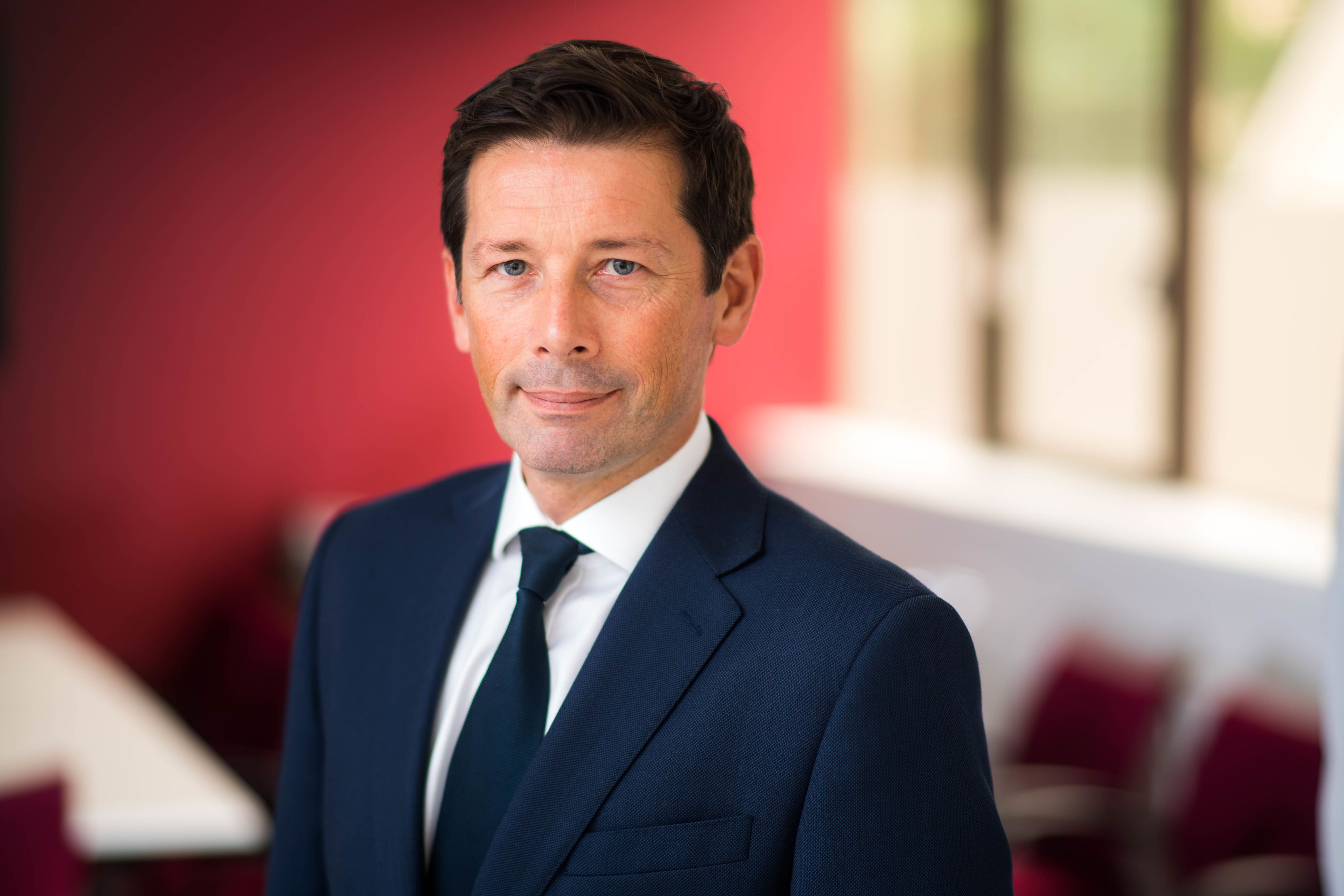
Richard Brooks is a Partner in our Injury division and specialist in injuries sustained in the course of working with animals; particularly horses.


